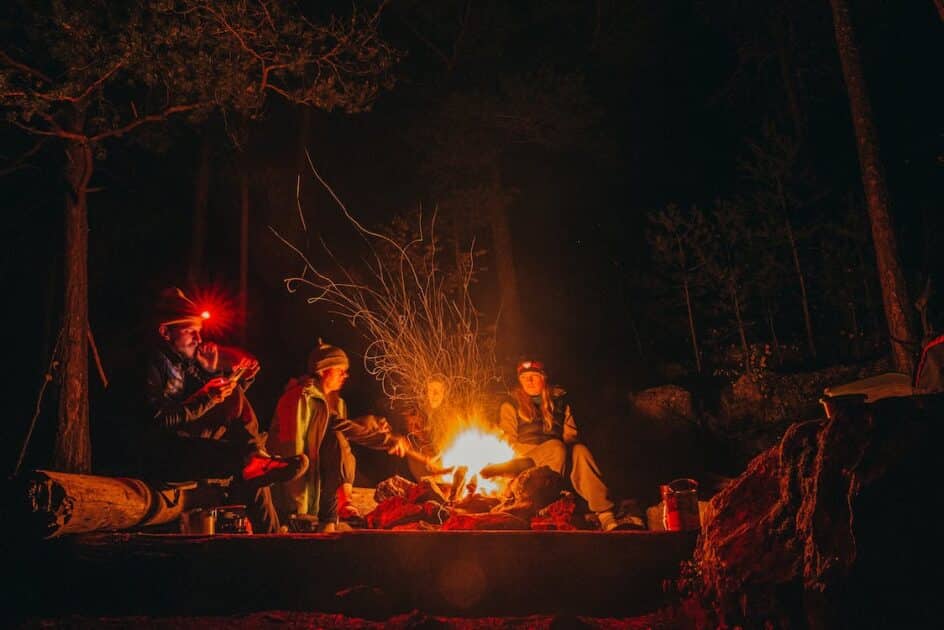Camping is an excellent way to spend time with family and friends. People want to go camping driven by their love for wilderness and their desire to enjoy being in nature. However, some novice camping enthusiasts fail to account for the dangers of camping. Yes, camping not all fun and games.
Luckily, you can avoid these dangers or tackle them by planning and researching beforehand. Keep reading this post if you want to plan a camping trip away from civilization safely.
Top 6 Dangers of Camping to Look Out For
1. Unfavorable Weather Conditions
Rough weather is the first and most unpredictable danger on our list. To have a pleasant, danger-free camping experience, plan your trip when calm, favorable weather is forecasted. Don’t rely on your tents to provide adequate shelter during bad weather. Camping tents are made of synthetic fabric like polyester and therefore lightweight; hence, they can’t withstand difficult weather.
Extreme hot and cold weather can be hazardous for campers since there is an increased risk of heat stroke, hypothermia, and dehydration. A storm or rain will ruin your campsite and invite danger.
Check the weather conditions beforehand to ensure safety. A safety tip for uncertain storms or rain is to set up camp on high ground and away from flowing water. Staying on high ground will protect you from flash floods. In case of lightning, avoid standing near lone trees. Instead, duck between trees. If you have your car or RV van with you, get inside and wait until the weather calms down.
2. Injuries and Health Emergencies
Camping in extreme conditions like in the wild is not encouraged for beginners. It is best to consult your doctor if you plan on going with expert campers on rougher camping expeditions. People with health issues like cardiovascular diseases and asthma should avoid camping as it involves a lot of strenuous activity and might result in exhaustion. Unfavorable weather conditions might also contribute to diseases and result in health emergencies.
Start with an RV or camping car if you are not physically fit or haven’t done physical training in a long time. Let your body get used to all the walking and hiking before you plan a wild camping trip.
Other health injuries include sprained ankles, concussions, cuts, falling and scrapping skin, broken bones, drowning, etc. It is best to learn a few basic healthcare skills to avoid injuries. Avoid hiking to unfamiliar spots as the risk of falling, getting trapped, and stumbling is higher.
Protect your feet from spraining by investing in proper hiking shoes. Another tip is to avoid getting too close to water bodies if you don’t know how to swim. Furthermore, carry a whistle to attract any other by-passer if you are stuck in a situation.
3. Insects
Another well-known danger of camping is being exposed to insects. Campsites are home to ticks and mosquitoes, and these insects are known to carry diseases. Lyme disease is carried and transmitted by ticks, whereas mosquito bite can cause malaria.
Avoid getting infected by camping on clear lands and avoiding tall grass. Carry an insect repellent with you and reapply every two hours. Additionally, wear full-sleeved shirts and pants.
Check your body for insects and ticks before getting in the tent. If you do find a tick, get rid of it immediately. An excellent DIY method to remove a tick is to use tweezers. Grab the tick close to the skin, gently pull it out, and wipe it with a disinfectant.
An added threat from the outside is getting a bee sting. Bee hives are found in places we like to camp. Avoid getting close to the hive and take extra care when out in the open. A great way to protect yourself while asleep is to drape a net over your tent.
Carry a first aid box to treat any infection or wound from insects; moreover, if you are allergic, take extra precautions while you camp out in the wild.
4. Fire Hazards
Camping is incomplete without a bonfire. People love to sit around the fire, chat, and roast marshmallow. However, fire is one of the dangers of camping. Campers who don’t start a fire correctly can cause a wildfire. It is better to allow skilled campers to take care of any work related to fire on camp grounds. Ensure that the bonfire is close to a water body and far from the campsite.
It is advised to leave no trace of fire after you are done with the bonfire. Carry a fire extinguisher with you or keep water close to extinguish the fire. Moreover, keep all flammables like oils, paper, and other liquids away from the fire. Besides taking corrective measures, build a fire pit that keeps campfire contained.
An excellent way to reduce the risk of fire hazards is by never leaving the campfire unattended and never starting a bonfire in high winds and scorching climates.
5. Getting Lost
We have all watched many movies about a group of people getting lost in the wild and experiencing unfavorable situations resulting in tragedy. This example is enough for us to understand the possibility of getting lost while camping.
Getting lost is specifically a threat for beginners and first-time campers. It is better to take preventive measures than to learn how to get out of that situation. Here are some tips to remember to avoid getting lost:
- Always use a GPS. For areas with no service, carry a compass and map with you
- Research and plan beforehand
- Stay on the camping trail and never leave your group.
- Don’t try activities you are not familiar with.
- Always tell a friend or family about your camping trip.
- Avoid hiking at night.
If you get lost, never lose your calm and panic; instead, use an emergency whistle and wait to be rescued.
6. Wild Animals
Another danger of camping is an encounter with wild animals. The risk of an animal attack is the highest in forests and deserted locations.
Bears, snakes, coyotes, and mountain lions are found around camping sites.
Bears and snakes are the most common animals with higher chances of an encounter. A safety measure is to store your food correctly and never leave it out in the open. If someone spots an animal around them should make everyone aware of it. Animals tend to attack when disturbed. So, another way to protect yourself is to never mess with animals and stay as far as possible.
Our Final Thoughts
Camping can be a lot of fun. However, it can also turn dangerous. It is essential always to be prepared for any uncertain situation. We hope our list of dangers of camping will help you plan your next camping trip and make it a safe one for everyone involved.











